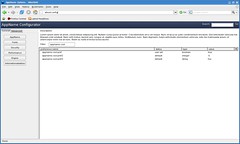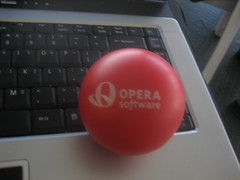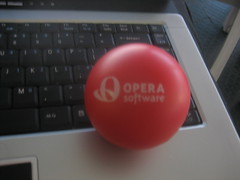Gemius zdecydował się (po jakiejś akcji z botami w USA) zmienić metodologię liczenia statystyk. (biuletyn)
Sprawę opisał już Adaś, który zwrócił uwagę, że odetnie to ludzi, którzy kasują ciastka po zamknięciu przeglądarki, oraz Quiris, który zdaje się uznawać, że wynikowa różnica jest dowodem celowego “fałszowania” statystyk przez użytkowników przeglądarek alternatywnych (Firefox, Opera, Safari, Konqueror itp.) poprzez celowe ustawianie kasowania ciastek po zamknięciu sesji, aby podbijać statystyki alternatywnych przeglądarek.
Chciałbym zwrócić uwagę, że problem naliczania statystyk jest czymś niesamowicie trudnym do rozwiązania. Każda metoda wymusza przekłamania. Już sam fakt liczenia na bazie ciastek odcina osoby mające wyłączone ciastka, odcięcie osób kasujących ciastka po zamknięciu przeglądarki, z jednej strony faktycznie usunie boty, automaty i osoby fałszujące, a z drugiej odetnie tych, którzy kasują ciastka ponieważ taka jest ich wola.
Aby zobrazować, że nie jest to margines, spójrzcie na nowoczesne przeglądarki oraz IE7. Wszystkie planują wprowadzać łatwo dostępną funkcję kasowania danych prywatnych, to chyba jasny sygnał, że użytkownicy mainstreamowi tego chcą.
Dodatkowo, aktualna metoda naliczania statystyk powoduje, ze jesli używam Firefoksa przez 95% czasu, ale raz na pare dni na sekundę odpalam IE, aby otworzyć stronę, która w Fx nie działa, to Gemius nalicza 50% dla Firefoksa i 50% dla IE.
Sądzę, że taki scenariusz nie jest rzadki, i gdyby udało się go włączyć do analizy, przeglądarki alternatywne mogłyby zyskać w statystykach (poprzez niezaliczanie tego odpalenia IE jako nowego użytkownika korzystającego z tej przeglądarki). Pytanie, czy jest to możliwe. Jeśli spróbujemy, to stracimy w wynikach osoby, które autentycznie korzystają z IE, ale bardzo rzadko w ogóle używają Internetu.
Pomijam już, choć może nie powinienem, fakt, że użytkownicy nowoczesnych przeglądarek często blokują Gemiusa, ponieważ łączenie do zewnętrznego serwera spowalania ładowanie strony…
Co począć? Przede wszystkim uważam, że trzeba sie uwolnić od ciastek. Póki statystyki liczone są na bazie ciastek, liczenie sesji i użytkowników zawsze będzie kulawe. Minimalnie pomoże pewnie popularyzacja , dzięki czemu statystyki nie będą spowalniać ładowania stron, ale nadal nie posiadamy mechanizmu, który zapewniałby możliwość śledzenia użytkowników, przy jednoczesnym zachowaniu ich anonimowości.
Update: Jedną z rzeczy, które bardzo chciałbym zobaczyć w systemach operacyjnych jest współdzielenie danych użytkownika przez aplikacje. Ciasteczka to MOJE dane, a nie przeglądarki. Dlatego logiczne byłoby, aby wszystkie przeglądarki współdzieliły moje ciastka. To samo tyczy się poczty, historii, haseł itp. To rozwiązałoby chociaż częściowo problem statystyk.




